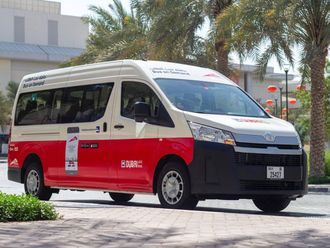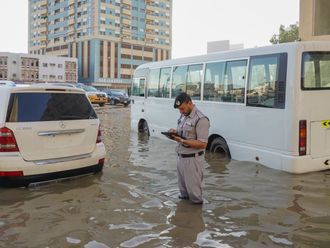Dubai: Experts suggest that Ramadan is the right time to improve the driving culture and learn defensive techniques, which could be akin to any spiritual deed that people seek to adopt during Ramadan.
They say good habits adopted during Ramadan could help improve road safety in the long run.
“Ramadan offers the message of compassion and exchange of goodwill and what better place than on the road to show these virtues. It could help save so many lives and there is no better thing than saving a life,” said Ahmad Hashim Behroozian, CEO of the Licensing Agency at the Roads and Transport Authority.
Listing the major causes of accidents and explaining how they can be avoided with the help of Ramadan, Behroozian said: “The majority of accidents happen because people don’t have patience, they are rude and they get involved in tailgating. I think Ramadan is the right time to practise self-restraint because self-control is the basic principle behind fasting and this should not be applied only to eating and drinking but in all parts of life including driving.”
Saying that a lot of accidents in Ramadan happen just before iftar when people are rushing to get home, he added: “If people can manage to attend their business meetings in time, why can’t they arrange adequate time to reach home for iftar without the need to speed? Ramadan should be the time when the accident rate goes down, not the other way round.”
Ramadan offers believers spiritual elevation and health benefits, but fasting also has physical effects on the human body, particularly as Ramadan coincides with the height of summer this year, which could genuinely impact driving ability.
“Fasting does have physiological and physical effects on the human body. Especially in the peak of summer it can easily lead to dehydration and fatigue. Fasting can cause temporary low blood sugar which will drastically affect attentiveness, concentration, vision and action/reaction, which means motorists need to take extra care during Ramadan and make sure they are fit to drive,” said Abdul Razzaq, assistant manager at the Emirates Driving Institute.
He said that less sleep, irregular meal times and evenings full of prayers, social gatherings and events also play a role in affecting driving ability.
However, he advised that if certain precautionary measures are taken and conscious efforts are made to improve driving habits, Ramadan can work wonders.
To ensure safe driving, the safety of passengers and other road users during Ramadan, he suggested motorists ensure they get enough sleep, avoid driving after a heavy iftar, do not drive if they feel weak, do not rush to their destinations and refrain from aggressive driving.
He urged that good and kind deeds towards others and good habits on the roads during Ramadan should become permanent habits for the future.












